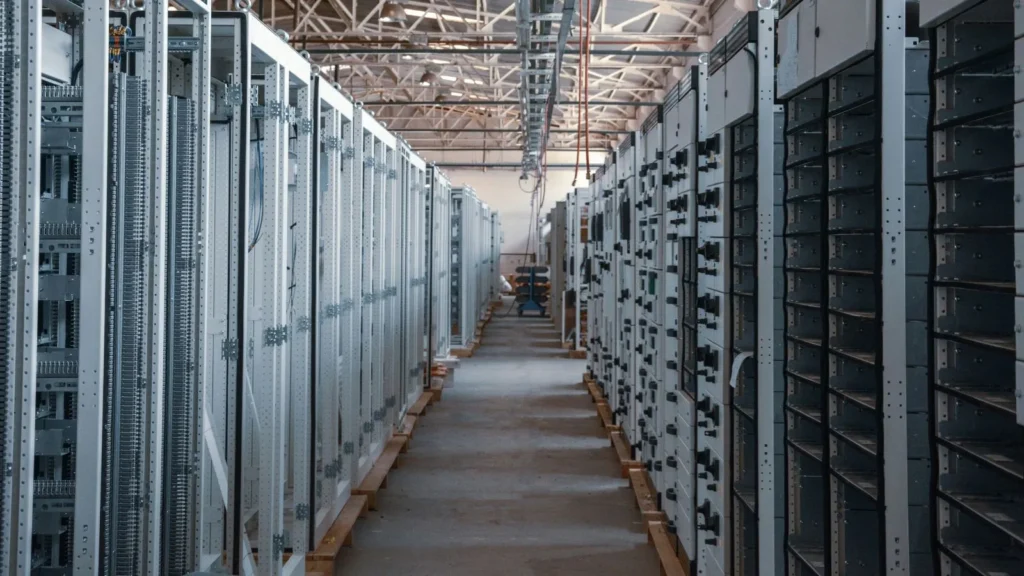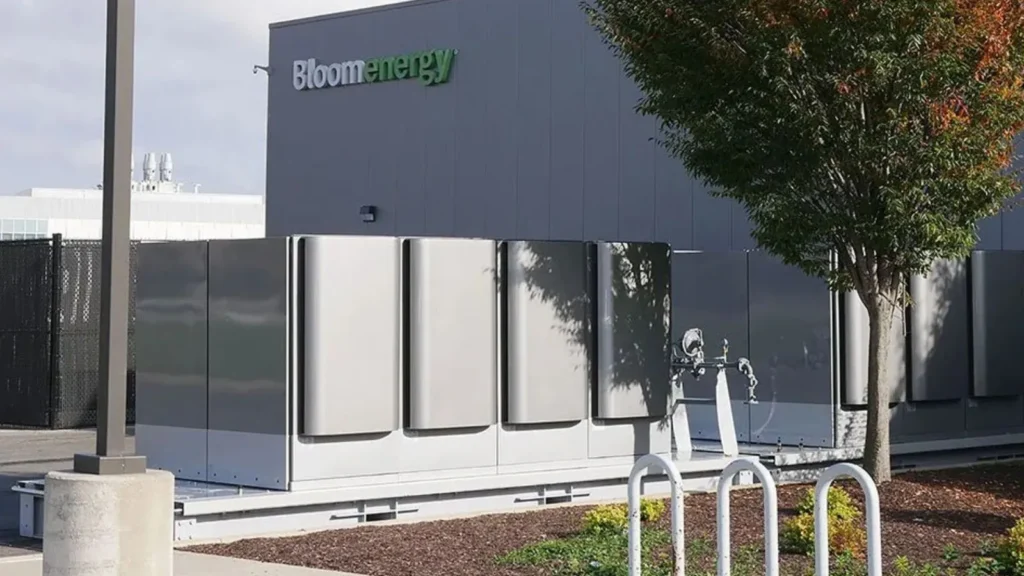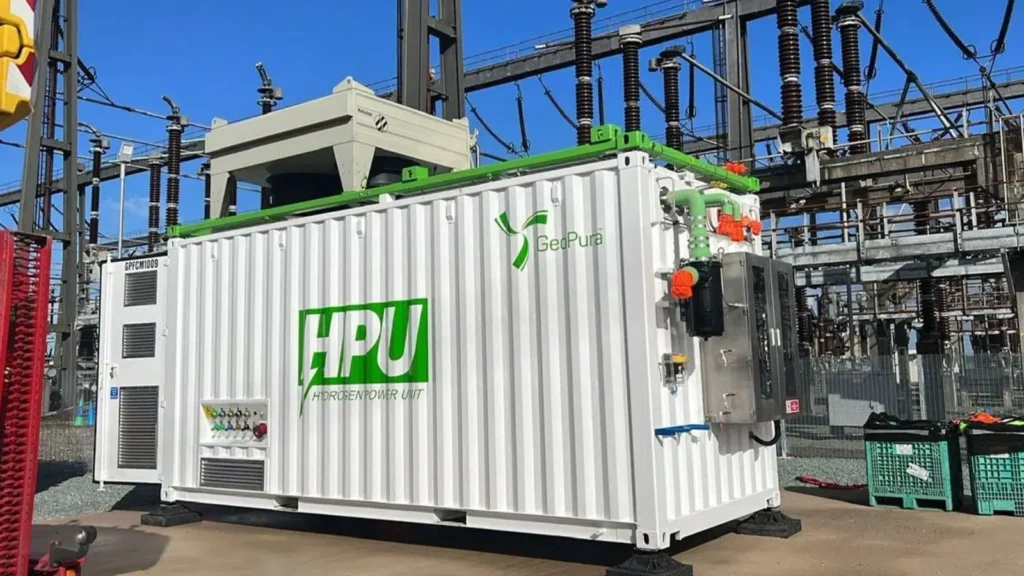Could hydrogen fuel cells be the right choice for data centres?

Hydrogen fuel cells are emerging as a cleaner, more sustainable backup power source for modern data centres.
Data centres are the backbone of the digital economy, supporting everything from AI chatbots to cloud storage, video streaming and financial services. As these facilities expand, their energy consumption is rising sharply. The Environmental and Energy Study Institute (EESI) warns that data centres could account for up to 12% of U.S. electricity demand by 2030. With the AI boom accelerating power needs, the search for reliable and sustainable energy solutions has become urgent.
This is where hydrogen fuel cells are gaining momentum. Increasingly, technology companies, energy providers and equipment manufacturers see them as a viable alternative to traditional diesel generators. Could this signal a cleaner, quieter and more resilient future for data infrastructure?
Why hydrogen fuel cells?
Hydrogen fuel cells generate electricity through an electrochemical reaction rather than combustion. Their only byproduct is water vapour. When powered by green hydrogen, they operate with zero emissions, minimal noise and no vibration — a significant contrast to diesel generators.
Real-world performance: the heat advantage
One of the biggest operational challenges in data centres is managing heat. Diesel generators produce substantial waste heat that requires heavy-duty cooling, increasing energy use, noise and infrastructure demand.
Hydrogen fuel cells operate at lower, more stable temperatures and produce far less waste heat. This reduces cooling requirements and, in some cases, enables passive thermal management — especially valuable for high-density edge sites and modular containerised facilities. Lower heat output also improves overall energy efficiency.
The fuel cell advantage
Hitachi Energy notes that hydrogen fuel cells can run continuously for hours or days, providing more scalable uptime than batteries. They are modular and can be sized according to facility needs. Plug Power adds that PEM fuel cell systems offer high efficiency and reliability with much lower maintenance than combustion generators.
Microsoft’s 2020 and 2023 hydrogen trials demonstrated a 250 kW PEM fuel cell running for 48 hours without issues, with project leads calling it a “game-changer”. FuelCell Energy highlights that fuel cells also reduce reliance on strained grids, making them attractive for regions with limited capacity or high carbon intensity. Companies like GeoPura and Intelligent Energy emphasise hydrogen’s flexibility across peaking, standby or even baseload applications.
AI’s power problem — and how hydrogen helps
AI training clusters consume enormous amounts of power, sometimes multiple megawatts per rack. This is pushing traditional infrastructure to the limit.
Bloom Energy argues that hydrogen fuel cell systems are well-suited for high-density AI campuses because they can deliver clean, stable megawatt-scale power directly on-site. Bloom has signed a US$5 billion agreement with Brookfield to power AI-focused campuses using its fuel cell platforms, enabling incremental deployment and bypassing transmission bottlenecks.
Grid strain — and hydrogen’s off-grid value
Global data centre expansion is putting immense pressure on electricity grids. Goldman Sachs forecasts a 165% increase in global data centre electricity use by 2030. Aurora Energy Research warns of significant strain in the UK. In parts of Europe, grid congestion is already affecting investment decisions.
Hydrogen fuel cells offer a strong off-grid or hybrid solution. By generating electricity on-site, data centres can avoid grid congestion or support the grid during peak demand. Companies including Microsoft, GeoPura and Bloom Energy are investing in distributed fuel cell systems to increase energy independence and operational resilience.

GeoPura’s perspective
GeoPura sees hydrogen fuel cells as essential for the future of hyperscale data centres, especially given the limitations of battery storage. Hydrogen systems deliver longer-duration backup, stable voltage and improved resilience. They can serve as primary or standby power while reducing grid dependence.
Who is already deploying hydrogen fuel cells?
| Company | Project Location | System Size | Fuel Cell Provider |
|---|---|---|---|
| Bloom Energy | US, Asia, Europe | 400+ MW total | Bloom Energy |
| Microsoft | US (WA, CA) | 250 kW (pilot) | Plug Power/Custom |
| EdgeCloudLink | US Midwest | 1 MW now, 1 GW planned | Unknown |
| CoreWeave | Illinois, US | Multi-MW | Bloom Energy |
| Intel | Santa Clara, US | MW-scale | Bloom Energy |
These early deployments are small but meaningful steps toward larger-scale adoption.

Green vs grey hydrogen
Hydrogen’s environmental impact depends on its source:
-
Green hydrogen: produced with renewable energy; cleanest option.
-
Grey hydrogen: produced from natural gas; includes CO₂ emissions.
-
Blue hydrogen: grey + carbon capture.
Many current projects rely on delivered hydrogen, which varies in carbon intensity. Some operators are shifting toward on-site green hydrogen production using electrolysers, a model promoted by GeoPura as the most resilient long-term solution.
Remaining barriers
Key challenges include:
-
Cost: Fuel cells and green hydrogen remain expensive but are becoming cheaper.
-
Infrastructure: Storage, distribution and refuelling systems are still developing.
-
Space and safety: Hydrogen systems need ventilation and safety design.
Despite this, rapid technological progress and large-scale investment by hyperscalers and governments are accelerating adoption.
So, is hydrogen the right fit?
For traditional backup power, fuel cells have already proved reliable. For AI megacampuses, hydrogen’s ability to deliver clean, dense, 24/7 power makes it one of the few scalable options.
As data centres evolve into critical global infrastructure, the need for clean, resilient and independent power will continue to grow. Hydrogen fuel cells may not be the only answer — but they are increasingly becoming an essential part of the solution.






